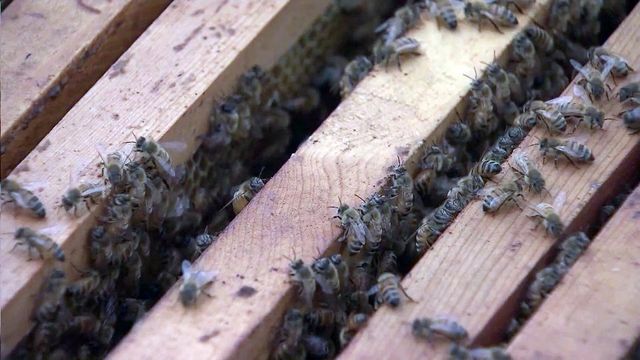NCSU researchers monitor honeybee health
Beekeepers from all over the country send samples of bees to a North Carolina State University lab and get back a report about the health of the colony.
Posted — UpdatedDeniz Chen, a researcher at North Carolina State University, says they are crucial.
“There's a whole host of insects which pollinate,” Chen said. “Bees, specifically, have evolved.”
When it comes to efficient pollination, nothing beats the honeybee. A single hive can hold up to 100,000 bees.
“It's a massive pollination machine,” Chen said.
Some crops are almost totally dependent on honeybee pollination, and scientists say the bees are in trouble. Massive colony losses continued this winter, as they have for several years.
Researchers at N.C. State are trying to help beekeepers learn what's happening.
Beekeepers from all over the country send samples of bees to the N.C. State Queen & Disease Clinic and get back a report about the health of the colony.
“We're using this to detect honeybee viruses and pathogens, and we're finding there's a lot out there,” Chen said.
The team studies dozens of bee samples a week. Chen says some particularly nasty pests are lurking overseas, and researchers are helping beekeepers track their spread.
The clinic arms scientists with good information about bee health that could help them find solutions.
“I don't think we'll see bees collapse where we don't have any bee hives, but we may have issues getting enough bees pollinating all of our crops,” Chen said.
• Credits
Copyright 2024 by Capitol Broadcasting Company. All rights reserved. This material may not be published, broadcast, rewritten or redistributed.





